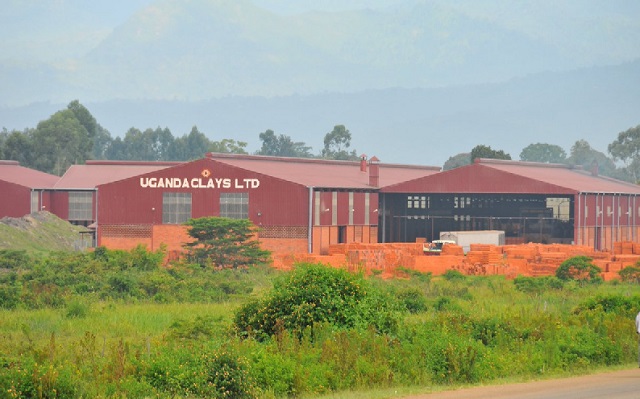
How management intend to turnaround performance going forward
Kampala, Uganda | JULIUS BUSINGE | The rise in revenue expenditure and emoluments for staff cut the profitability of Uganda Clays Limited (UCL) for the last six months ending June 30, 2018.
However, the company eyes a bright future due to new outlets opened across the country and increasing sales.
Financial results released on August 29 shows that its total revenue increased by 11% to Shs14.4bn for the last six months ending June 2018, up from Shs12.8bn during the same period last year.
Its net profit declined by 75% to Shs 1.2bn, down from Shs2.1bn during the same period under review citing increase in operational costs.
This was a result of a 24% surge in the cost of sales from Shs6.5bn to Shs8.6bn in the period under review.
As a consequent, earnings per share declined from Sh2.41 in the first six months of 2017 to Shs1.41 in the same period in 2018.
The company’s assets grew by 18% from Shs19.1bn last year to Shs23.2bn this year. On the contrary, its liabilities went up by 32% from Shs3.4bn to Shs5.1bn in the period under review.
George Inholo, the company’s managing director and Martin Kasekende, the chairman board of directors said the decline in the company’s profitability was majorly attributed to the increase in cost of production that resulted from the acquisition of assorted factory spares intended to improve the production efficiency at both company factories – in Kajjansi and Kamonkoli.
The duo said the production workforce was also motivated with an increase in their emoluments.
“Distribution costs rose as the distribution strategy changed in order to enable our key customers and business partners access our products faster,” officials said adding, “This shall eventually lead to increase in sales volumes.”
Early this year, Inholo told The Independent that they had opened up new distribution points in Arua, Lira, Gulu and Kabale in a bid to get closer to customers.
In addition, he said that the key thing was visible leadership and that the biggest agenda for “us as a businessis to increase our top line, drop costs, motivate staff and raise the bar on our control environment and ensure the health and safety of our staff, our customers and the community where we do business.”
He also said that their business strategy is designed in such a way that it upholds its quality agenda and ensure that products are available and distributed on time and rightly priced.
“We will continue to have customer centric attitude in addition to dropping waste in the company,” Inholo said.
When asked to comment on the general performance of the company, Arthur Isiko, a former research analyst at African Alliance Uganda Limited, who also follows closely the performance of listed companies on the Ugandan bourse, said the current management at the company appears to have handled a management crisis that existed years back and put in place a favorable working environment which could partly influence performance of the company going forward.
He added that the future performance of the company will be determined by the final decision to be taken by the management of UCL and that of National Social Security Fund (NSSF) regarding the Shs23.2bn debt that the former owes the latter.
This contentious issue dates back in 2015 when UCL and the NSSF Board resolved to cap the interest accrual on the loan with effect from June 30, 2015.
Though NSSF showed interest to convert the entire loan into equity, it backtracked its plans arguing the move would make them majority shareholder yet do not have expertise to run clay business.
Share price movement
UCL’s share price during the period under review has more than doubled from around Shs13 to Shs29 per share on the Uganda Securities Exchange during the same period under review.
Going forward, according to Isiko, the market is unlikely to see any material shift in its share price until UCL and NSSF management conclude the Shs23bn debt issue.
 The Independent Uganda: You get the Truth we Pay the Price
The Independent Uganda: You get the Truth we Pay the Price



